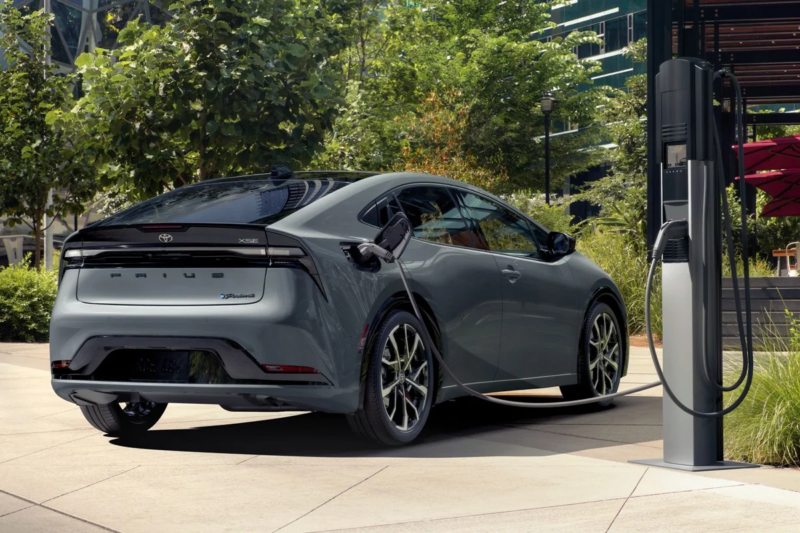Hybrid vs. Electric Vehicles: Which is the Better Choice for You?
October 14, 2024

As more people look for eco-friendly transportation options, hybrid and electric vehicles (EVs) have become increasingly popular. Both types of vehicles offer benefits over traditional gasoline-powered cars, but each has its own set of pros and cons. Whether you’re concerned about the environment, fuel costs, or driving range, this guide will help you understand the differences between hybrids and fully electric vehicles to help you make the best choice.
1. Understanding Hybrid Vehicles
Hybrid vehicles combine a gasoline engine with an electric motor, allowing them to switch between or combine the two power sources. There are two main types of hybrids:
a. Full Hybrids
Full hybrids, like the Toyota Prius, can operate on either the gasoline engine, the electric motor, or a combination of both. They typically have regenerative braking, which recharges the battery while driving.
b. Plug-In Hybrids (PHEVs)
Plug-in hybrids, such as the Chevrolet Volt, have a larger battery that can be recharged by plugging it into an electrical outlet. PHEVs can operate purely on electric power for short distances, then switch to the gasoline engine when the battery is depleted.
2. Understanding Fully Electric Vehicles
Fully electric vehicles, like the Tesla Model 3 and Nissan Leaf, rely entirely on a battery-powered electric motor, producing zero tailpipe emissions. EVs must be charged by plugging into an external power source, and they do not use gasoline at all.
3. Pros and Cons of Hybrid Vehicles
Pros:
- Extended Range: Hybrids offer greater flexibility for long-distance travel since they can switch to gasoline if the electric battery runs out.
- Fuel Efficiency: Hybrids generally offer better fuel economy than conventional vehicles, saving on gas costs over time.
- Lower Upfront Costs: Hybrids tend to have a lower purchase price compared to fully electric vehicles, making them more accessible for some buyers.
- Charging Flexibility: Since they don’t rely solely on electricity, you don’t have to worry about finding charging stations during long trips.
Cons:
- Limited Electric Range: Most hybrids can only operate on electric power for short distances, meaning they still rely on gasoline.
- Higher Maintenance: With two powertrains, hybrids can have more complex maintenance needs compared to fully electric vehicles.
- Emissions: While hybrids produce fewer emissions than traditional vehicles, they are not zero-emission like EVs.
4. Pros and Cons of Fully Electric Vehicles
Pros:
- Zero Emissions: EVs produce no tailpipe emissions, making them the more environmentally friendly option.
- Lower Operating Costs: Electricity is typically cheaper than gasoline, and EVs often have lower maintenance costs due to fewer moving parts.
- Incentives and Rebates: Many governments offer tax incentives, rebates, or other perks for EV owners, which can offset the initial purchase price.
- Quiet and Smooth Ride: EVs operate quietly and provide instant torque, resulting in a smooth and responsive driving experience.
Cons:
- Range Limitations: EVs have limited driving ranges compared to hybrids, though this is improving with newer models. Range anxiety can be a concern, especially in areas with fewer charging stations.
- Charging Time: Recharging an EV takes longer than refueling a gasoline vehicle, even with fast chargers. Home charging can take several hours.
- Higher Upfront Costs: EVs generally have a higher purchase price than hybrids, though this is decreasing as technology advances and more models become available.
5. Key Considerations for Choosing Between Hybrid and Electric
a. Driving Habits and Range
If you frequently drive long distances or don’t have easy access to charging infrastructure, a hybrid might be the better choice. However, if most of your driving is local, and you have a reliable charging setup, an EV could suit you well.
b. Environmental Impact
If minimizing your carbon footprint is a priority, fully electric vehicles are the clear winner, as they produce zero emissions. Hybrids, while more efficient than traditional vehicles, still contribute to pollution due to their gasoline engines.
c. Total Cost of Ownership
While EVs can have higher upfront costs, they often benefit from lower running costs and available incentives. Hybrids can be more economical initially, but may have higher fuel and maintenance costs over time compared to EVs.
d. Access to Charging Infrastructure
Consider your access to charging stations, both at home and in your area. If public charging stations are limited, a hybrid might offer more convenience. For those with easy access to home charging, EVs can be a practical and convenient option.
6. Future Trends in Hybrid and Electric Vehicles
The automotive industry is rapidly evolving, with advancements in battery technology leading to longer ranges and shorter charging times for EVs. Many automakers are also expanding their EV lineups, providing more options for consumers. Hybrids are becoming more efficient, with newer models offering improved electric-only ranges and lower emissions.
Conclusion
Deciding between a hybrid and a fully electric vehicle depends on your lifestyle, driving habits, and priorities. If you value flexibility and long-range capabilities, a hybrid may be the better fit. However, if you’re focused on environmental impact and long-term cost savings, an electric vehicle could be the way to go. By weighing the pros and cons of each, you can choose the option that best meets your needs and helps you drive toward a more sustainable future.





